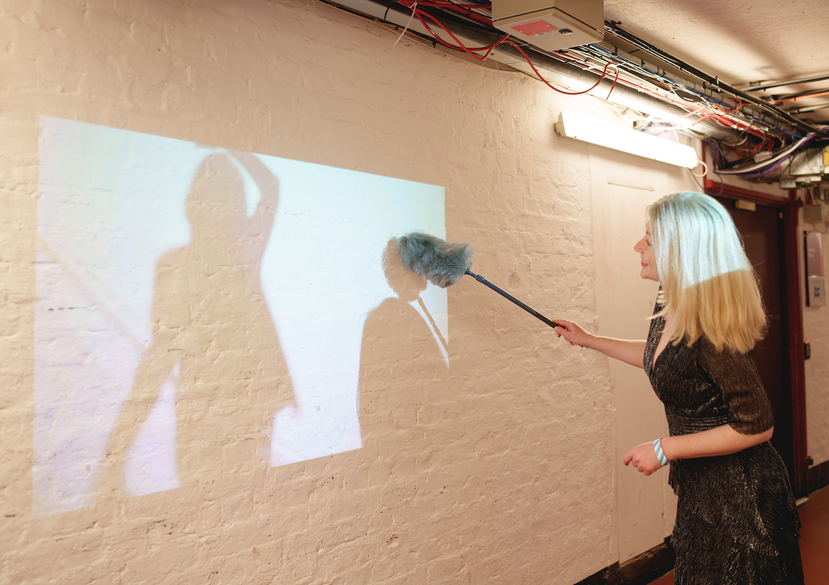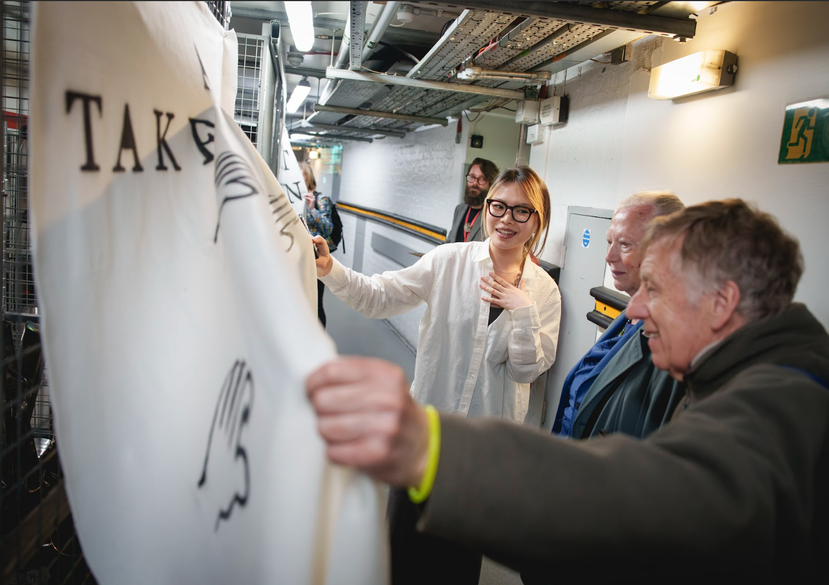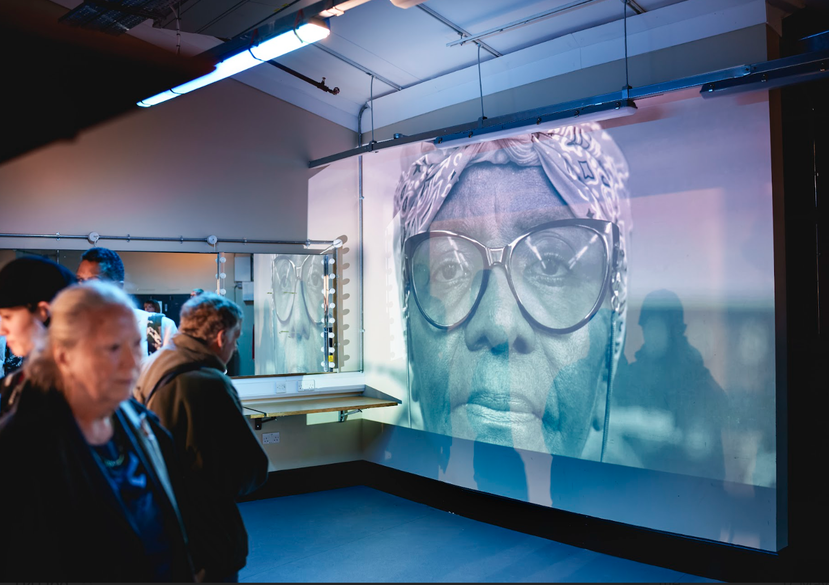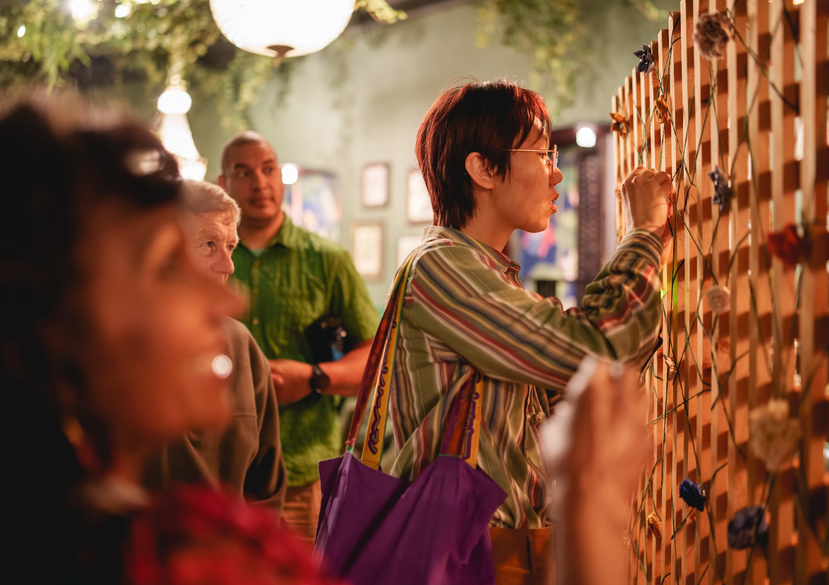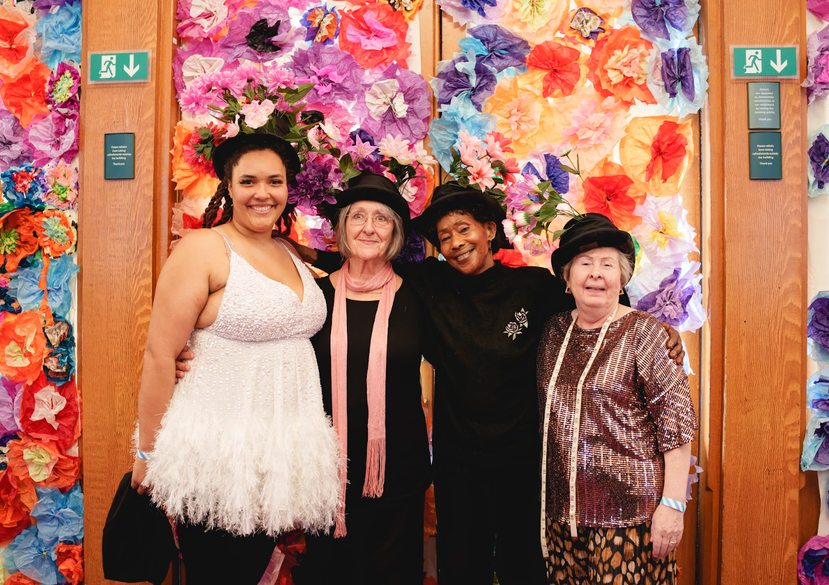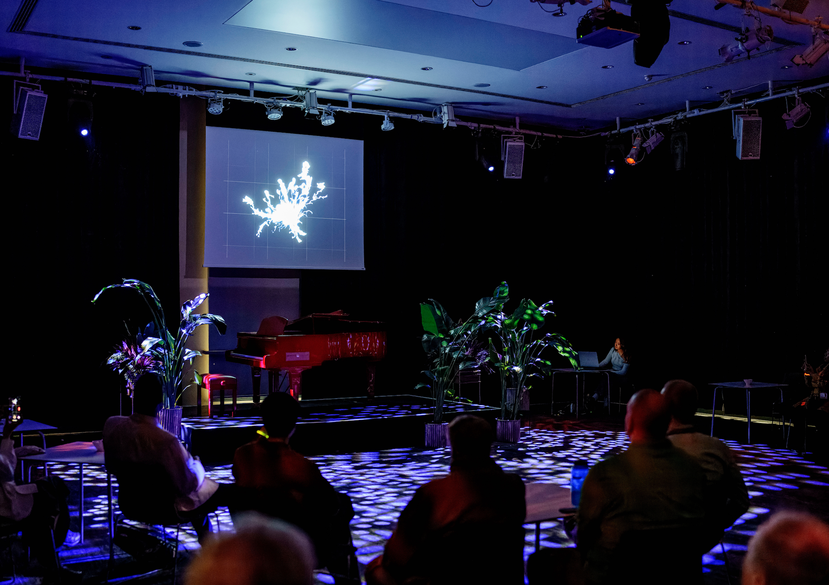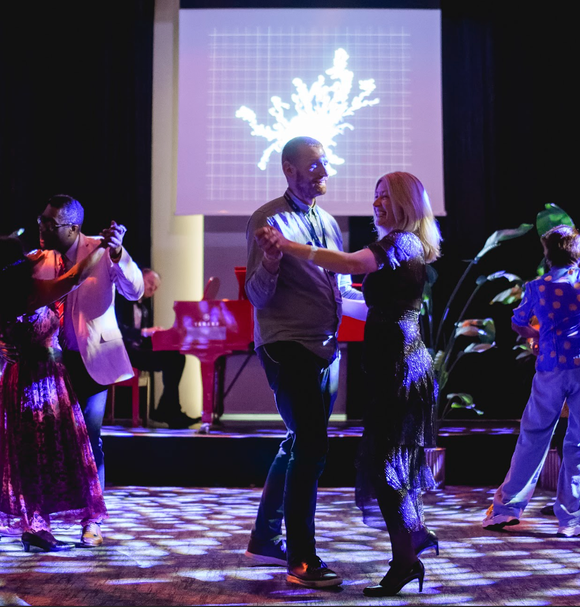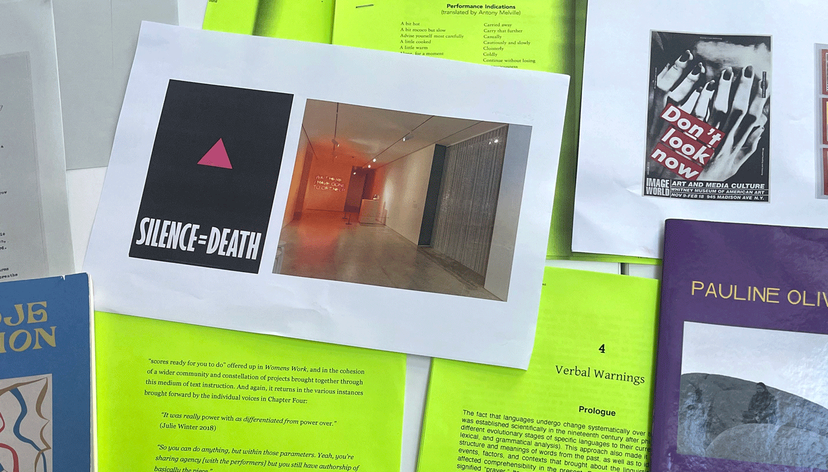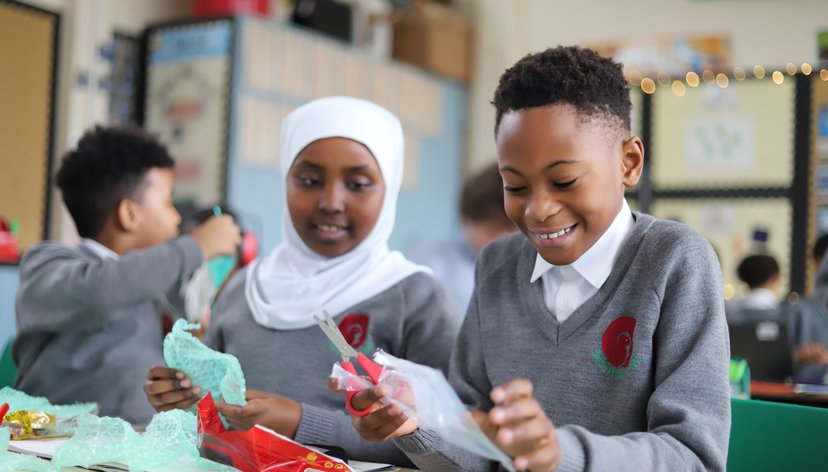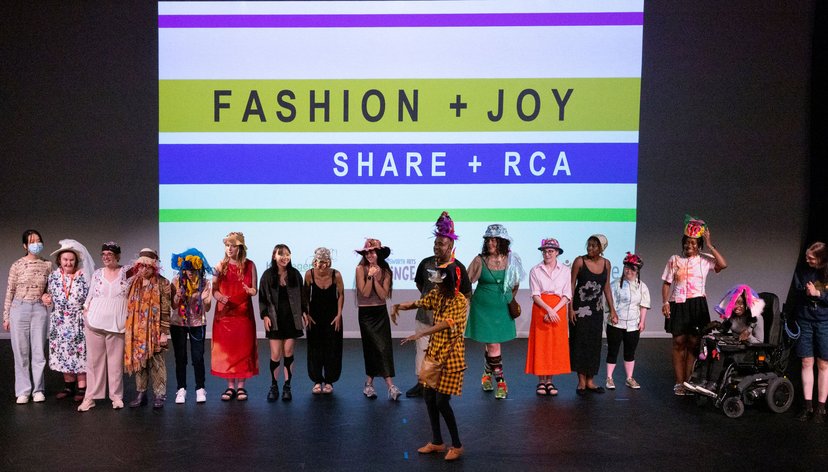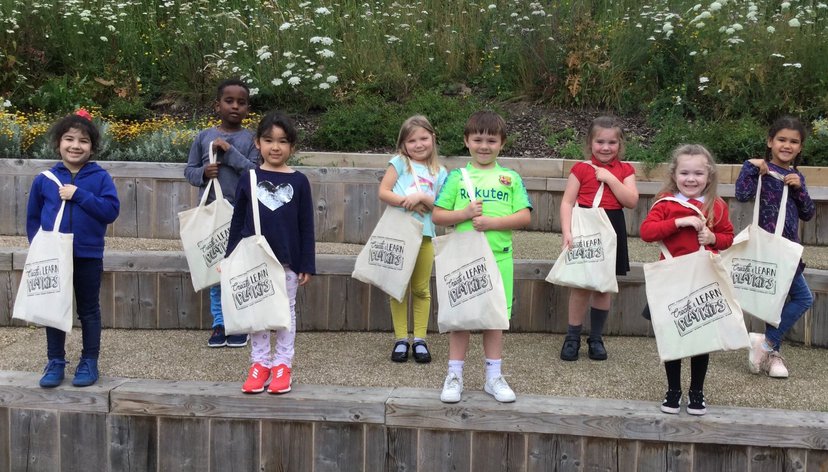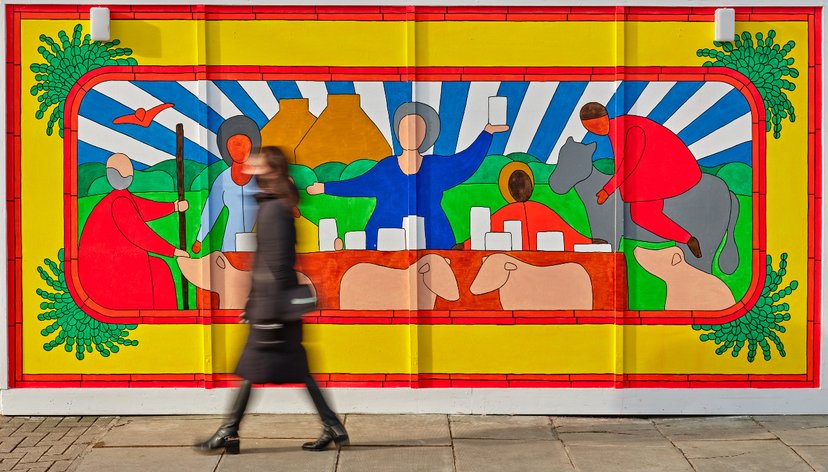
Intergenerational engagement with the Blackfriars Settlement and the Royal Albert Hall.
At a glance
- The project took place over a six-month period between 2022–23, with seven members of the Blackfriars Settlement in Southwark collaborating with eight students from the Royal College of Art.
- Led by artist Sue Mayo, with support from Chuck Blue Lowry and the Hall's engagement team, the intergenerational group worked together to create a promenade performance, Dancing on the Ceiling, that explored themes of transition.
- The co-production enabled students to share their skills and ideas with older adults, and learn new skills and ideas from older adults, putting democratic participation at its heart and bolstering students' professional practice.
- The project supports the ongoing vision by both the RCA and Hall to make their environments more accessible for all our visitors.
Key details
Gallery
More information
Aims of the project
Open Stages is part of the Royal Albert Hall's engagement programme and has been running since 2015. It provides an opportunity for partners to collaborate together on a world-class, intergenerational and multi-arts project which culminates in a site-specific, promenade performance around the Hall.
For the 2022–23 iteration, students from different disciplines across the RCA worked with members of the Blackfriars Settlement, a community organisation in Southwark, creatively facilitated by practitioner Sue Mayo, a theatre maker, facilitator and researcher who specialises in participatory and collaborative projects.
The project provided an opportunity for students to co-produce a range of exciting performative work, giving them new professional practice experience and supporting the Hall and RCA's vision to create accessible, innovative art and dialogue by, with and for everyone.
What happened?
Students participated in weekly workshops over a number of months, most of which took place in community settings in Southwark and the Hall. The process was very hands-on; all participants actively took part in creative exercises ranging from simple discussion to acting and songwriting. Sessions explored the theme of transition – what is necessary to leave behind to make space for new beginnings? For example, how things get replaced or are renewed, like the ebb and flow of the tide, the end of the year and the start of the new year or how the Hall’s stage is continually changing as each new production comes and goes.
Through the journeys and relationships formed in the process, a series of installations, poems, soundscapes and films were created for a promenade performance, Dancing on the Ceiling, in May 2023. The performance enabled hidden and unseen spaces of the Hall to take on new life and characters, such as a chorus room, housekeeping corridors and a ramp in the loading bay. The project also made use of public-facing spaces, including the 1871 and Kensington Gardens Bars and the Elgar Room.
The performance
Welcomed by a team of floral ringmasters, the audience was entertained by theatrical nuances of preparation. Guided from the Door 6 foyer, they descended into ‘no entry’ areas to peek into the fascinating contents of the catering and housekeeping corridors.
These spaces were animated by films, voice and sound-works made by community group members and students during workshops relaying ideas of reaching for the stars and dancing ghosts. Installations included canoodling mops and conversations from overworked Henry Hoover vacuum cleaners!
A chorus room, more often a busy and frenetic dressing room, became a space for spiritual contemplation and rest.
In the 1871 Bar, guests were invited to learn dancing steps, indulging in the cha cha cha, swaying into a classic ballroom hold and shimming through salsa.
Each person was gifted a flora handmade fabric broach that they could select after a healing meditation in the Kensington Gardens Bar.
The catering ramp became a stage for a unique dancing trolley and performance.
The show culminated in the Elgar Room to experience an immersive sound performance with experimental music and an improvised digital art piece derived from documentation of gestures and interactions between the two groups with computer vision technology by Haoxuan Zhang.
People were led to dance by a ballroom dancer to tunes played on a red grand piano. A poem written by Rizpah Amadasun and performed by Diane Brown bade the audience farewell.
Information about the participants
Royal College of Art: Megan Sharples (MA Fashion), Kavyaa Suryaa (MA Photography), Haoxuan Zhang (MA Textiles), Orla Jackson (MA Print), Rizpah Amadasun (MA Painting), Shiqi Sha (MA Contemporary Art Practice), Ting Yu Lee (MA Information Experience Design) and Yujin Lee (MA Interior Design).
Blackfriars Settlement: Barbara Clarke, Betty Juba, Diane Brown, Jereline Wilkie, Joyce Foster, Kandy Cole and Lee Kempster.
With thanks to
Royal Albert Hall: Ed Cobbold & Eleanor Jones
Project Artist and Facilitator: Sue Mayo with support from Chuck Blue Lowry
Blackfriars Settlement: Tina Johnston & Siggy Cosias
Royal College of Art: Hannah Lambert

